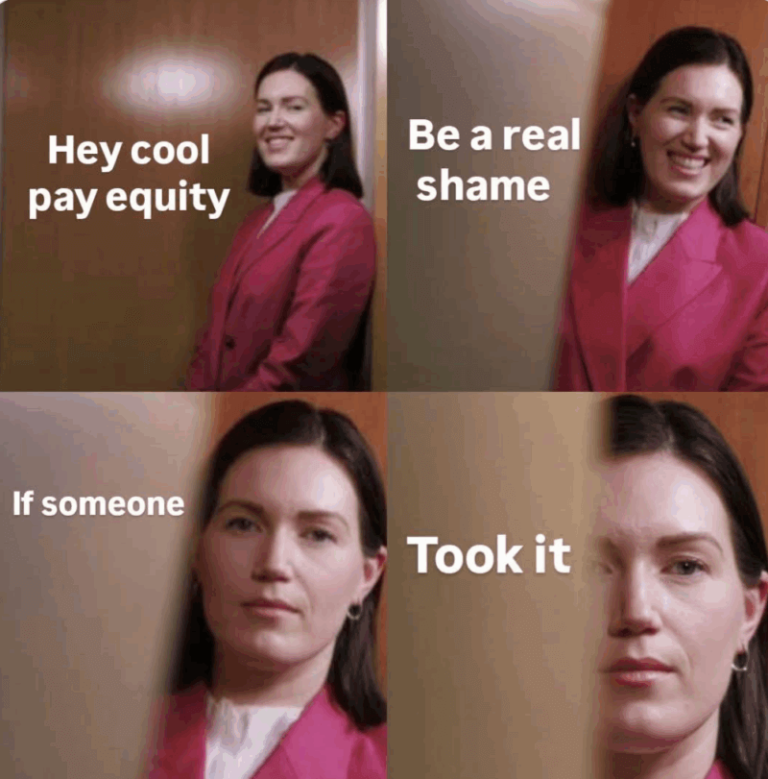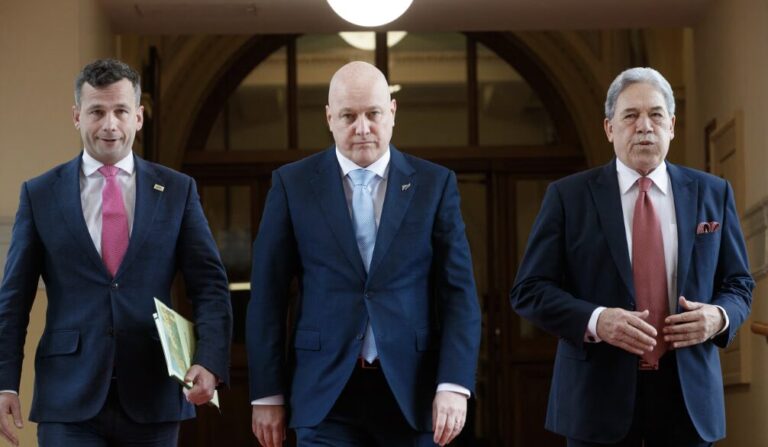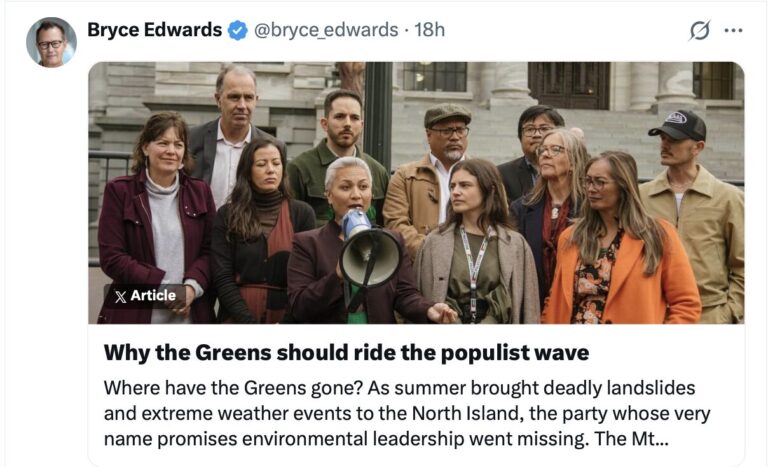3 Wise Men and low level journalism
Kevin Norquay, (Sunday Star Times October 26, 2025), writes It’s an illusion: politicians can’t necessarily fix your groceries or mortgage spend and calls on economists Michael Reddell, Eric Crampton and Brad Olsen to answer whether the government has the power to “fix economies, and with it the lives of voters”.
He asks:
But do governments have that power? Should you believe they have, should you punish them when they fail to do it?
Mixing up the metaphorical picture, the author goes “in search of three wise men, in search of a guiding light”. Oh how Biblical allusions can be a distraction:
Herod summoned the Wise Men secretly and found out from them the precise time the star had emerged. He sent them to Bethlehem and said, ‘Go and make a careful search for the child. As soon as you find him, report to me so that I too may go and worship him…They were then miraculously warned in a dream not to return to Herod, as he planned to kill Jesus to preserve his authority, and returned to their home by an alternative route.
After being sucked in by Herod, the three wise men needed magic intervention-not wisdom to undo their foolishness.
Media 101 would suggest economists, if wise, do not allow themselves to be manipulated into answering poorly framed questions. They will be bound to be misquoted or unhelpfully edited and more likely add to the general media noise than generate understanding.
According to the journalist, the consensus of our three wise men re the original question was:
Governments don’t make the economy thrive, but they can make it stumble.
Olsen, seems out of tune with this consensus story when he cites an unambiguously great outcome from the broadband rollout. But there is little else good to be said about state activity by the three wise ones. Yet surely the government is an integral part of the economy producing the health, education and income insurance, law and order needs of workers and those not in paid work, ie all of us, so that the whole economy can thrive? The private sector and government are complementary and synergistic.
The 20 economists who signed the open letter to the Minister of Finance a few weeks ago would certainly argue the first part of the journalist summary consensus statement is patently untrue. A well-functioning, well-resourced government is essential to ensure the private sector thrives. This will be even more true when there are many more climate change and other events that demand an efficient collective response to keep us safe.
The second part of the consensus statement about governments being able to make the economy stumble appears to be derive from various ‘wise’ contributions. Crampton says: In the shorter term, it is much easier for governments to wreck the economy than it is for them to improve things. Reddell says: Policies do make a difference, for good and ill. We’ve adopted too many of the wrong ones for too long.
The 20 economists do not fudge it: the policies that cut spending to reduce the deficit in a recession have been ill-advised and ruinous. Poor macro-policy has made the recession worse and increased the wealth and income divide, directly reducing the resilience and capacity of the economy. Continuance of these policies will have further harmful social effects that reverberate for decades and will ensure the economy continues to flounder with an even greater loss of critical skilled workers.
Reddell says there is ‘no reason why the economy could not, longer term, do much better’ and leaves the article with the final word: “Where the serious debate should be is what are the roadblocks and how to make progress in removing them.”
Maybe the most serious roadblock is the prevailing narrative that government spending is always wasteful, and that for private sector expansion, government itself is the roadblock and must be reduced in size.
Let’s hope there is a follow up article that first acknowledges that many economists think chasing the goal of minimal state is antithetical to a thriving economy. One currently underperforming role of government is to ensure a healthier distribution of income and wealth, another is to moderate or reform private markets where competition clearly does benefit citizens, eg the electricity and food distribution sectors to name two. Better policy in tax can help bring about a fundamental shift of real resources from investment in high end housing to rebuilding the shattered health and education systems, housing the homeless and the ageing population.
There is so much for government to do better and time is running out for low level sound bite debates.







https://www.facebook.com/modern.money.theory.aotearoa.new.zealand
https://www.facebook.com/groups/mmt75
I think they need to visit these two Facebook groups.
Taxation, what care deposit on our humanity.
Don’t know if these economists a the 3 wise men NZ is looking for but the journo has a great bio. https://muckrack.com/kevin-norquay/articles
gulp- deeply shallow?
How to cut costs and lose votes…
https://www.nzherald.co.nz/nz/acc-stops-payments-to-record-numbers-of-long-term-clients/AZ77NBWFW5AKVBXB7LSVFRHCJI/
yes this is shocking– we gave up the right to sue to have long-term cover for serious accidents
Governments can do plenty about the economy. Consider the egregious power price increases that make up so much of recent cost of living increases. Neoliberal councils have imposed water charges all over the place – no reason the big generators should get their water (our water goddamnit!) for free. Put in a charging mechanism that punishes consumer price increases severely, and this mischief will become much less frequent, with a modest increase in govt income. No nationalization required.
If governments can’t make the economy thrive, why do they keep promising us they can? In fact one of the reasons they can’t make the economy thrive is that all parties – except perhaps the Greens and TPM seem to have accepted the neoliberal consensus. In other words, stay out of the economy as much as possible. One thing Marx got right, will was that that leads to the situation we have to day where a few very large companies have economies larger than some countries, and the people in charge of these companies have far too much say in politics one way or another. Seems to me political parties worldwide are in hock to their corporate donors these days. One of the reasons perhaps why Labour is so half-hearted in its tax policy.
This govt’s. biggest problem is never admitting when it’s wrong. Ideologically they cannot get past their belief in their own superiority and blindly follow and repeat failed policy.
When their policies benefit the privileged few and they rely on the privileged few to donate to their electioneering activities a.k.a. bribes, the govt. will not examine why they are failing most of the population.
The donors are happy, so the govt. is happy.
They are not a real govt. They are a bunch of largely ignorant and certainly cruel sycophants, put into parliament to ensure the privileged few do well. Nothing more.
With the revelation last week of the pm’s rates rebate the scales are falling from our eyes. We now realise that if the pm is demanding rates rebates for one property, he’s demanding rebates for all 7. If he’s doing it then it follows, that all the privileged few will be doing it on all their properties too. The council is ‘owned’ by the privileged few as much as govt.
They are all on the make from the public purse all the time. Few of them are honest enough to accept what they are given without fighting to get more. It’s a huge scam.
Contrast that with the compensation payouts given to victims of state abuse. According to Verity Johnson, if an ex-state care victim has subsequently committed a crime and received a sentence of 5 years in prison or more, they can no longer apply for compensation. A friend says he’s helped prisoners make their claims and was disgusted to hear about some of the things they then bought with their money. Very extravagant and completely unnecessary purchases. That may be so, and those people have made bad decisions in their lives and created more victims. However, it’s not really anyone’s business what they bought with their money.
The privileged few are always making extravagant and unnecessary purchases too and no-one questions their right to do so. Even when much of their wealth is acquired by cheating the various systems and institutions we support as tax and rate-payers for the common good.
It’s dirty, rotten and dishonest. Therefore, it’s definitely a scam, run by govt. for the benefit of the privileged few who never pass on their bounty and claw back as much as they can. That’s the main reason the economy fails. No-one is looking after it correctly.
3 Wise Men and low level journalism
By Susan St John -October 28, 2025
“…..the prevailing narrative that government spending is always wasteful, and that for private sector expansion, government itself is the roadblock and must be reduced in size.” Susan St John
Margaret Thatcher (Baroness) said there is no such thing as society.
Or as Martyn Bradbury likes to say, they want to make government so small that it can be drowned in a bathtub.
To which I might add, that so that they can impose their Chicago School neoliberalism project, at the point of a gun if necessary.
From Google:
The “Chicago School” refers to a neoclassical economic theory emphasizing free markets, and its connection to Augusto Pinochet’s regime in Chile is through the “Chicago Boys.” These were Chilean economists, many trained at the University of Chicago, who advised Pinochet after his 1973 coup and implemented sweeping neoliberal reforms like privatization and deregulation, leading to economic growth but also increased inequality. Their policies became known as “El Modelo” (The Model) and were influential in Chile even after the dictatorship ended.
And they call themselves journalists?
More like nasty neoliberal propagandists.
Government are unable to exert much change on our economy currently because we are now firmly being controlled by large corporate donners .A prime example is the sinking of the ferries ,of which the first would have been or about be delivered .Yes the future proofed warfs were 3 billion which is less than the blow out for the Warkworth to Te Hana road .The Ferries are an extension of state hiway one so 3 billion all up is chicken feed over the next 50 years .Had the big donners not been given billions in hand outs in the first 6 months NZ would be on track to a better out come than we are going to get .We need to slam those big donners and make policy that has the well being of the 5 million at the fore front not the 10% who believe they are superior because they have a couple of million in the property and tobacco industry .
It appears that our media only provides the views that whoever controls that media want people to believe so you will be waiting a long time for accuracy regarding the role of government in the economy from the sources you mentioned.
We have 2 major failures that are behind most of the issues in society in my view, as you cover in this article the wealthy have control of the government and we mostly get decisions that increase the inequality in society. People lack the self control necessary to enable them to live the best life possible. I guess that you could add that we lack the flexibility to consider each situation on its merits and insist on making the same solution fit everything when life doesn’t always allow that.
I read an article where a property had a million dollar clean up from asbestos when it was not worth anywhere near that amount which I presume came from a rigid set of rules and a contractor with excessive set charges along with whatever fees were applied. I don’t know if they had any insurance coverage or if it is even possible to insure against that situation as the current result seems very unjust to me.